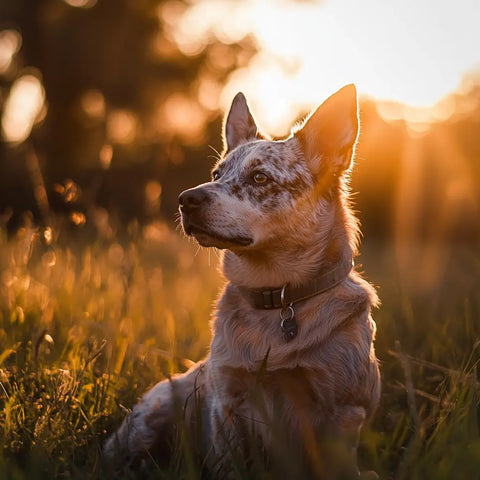Great Danes, often referred to as "gentle giants," are cherished for their affectionate nature and striking presence. However, their size and genetic makeup make them prone to specific health problems that require careful attention. Recognizing the common great dane health problems of Great Danes is essential for ensuring these majestic dogs enjoy a long, happy life.
In this detailed guide, we’ll uncover the most prevalent health concerns affecting Great Danes, offer tips for prevention, and provide actionable advice to help you care for your beloved companion. Whether you’re a seasoned owner or considering adding a Great Dane to your family, this article has everything you need to keep your pet healthy and thriving.

Common Health Problems in Great Danes
Great Danes, with their majestic stature and gentle demeanor, are prone to several health challenges that owners must be aware of to ensure their pets' well-being. These health problems of Great Danes often stem from their large size, genetic predispositions, and unique physiological needs.
By understanding these issues, owners can take proactive steps to prevent or manage conditions, enhancing their Great Dane’s quality of life.
In this section, we’ll delve into the most common health problems of Great Danes, including digestive, cardiovascular, and orthopedic issues. You’ll learn to recognize symptoms, understand treatment options, and discover preventative measures to keep your furry friend healthy and happy.
1. Digestive Issues
One of the most critical health problems of Great Danes is digestive issues, particularly bloat, also known as Gastric Dilatation-Volvulus (GDV). This life-threatening condition occurs when the stomach fills with gas and twists, cutting off blood flow to vital organs.
Bloat progresses quickly and can be fatal without immediate veterinary intervention, making it essential for Great Dane owners to recognize and respond to the early signs.
Symptoms of Bloat
- Restlessness and pacing
- A swollen or distended abdomen
- Rapid breathing or panting
- Unsuccessful attempts to vomit
Emergency Care and Prevention Tips
If you suspect bloat, seek emergency veterinary care immediately. Preventive steps can reduce the risk of this condition:
- Feed your Great Dane smaller, more frequent meals instead of one large meal.
- Avoid vigorous exercise for at least an hour before and after meals.
- Consider a preventative surgery called gastropexy, which secures the stomach and reduces the risk of torsion.
2. Cardiovascular Issues
Another common dog issues in Great Danes is Dilated Cardiomyopathy (DCM), a condition where the heart becomes enlarged and weakened. This issue affects the heart's ability to pump blood effectively, which can lead to heart failure if not managed. Due to their predisposition, regular cardiac screenings are crucial for early detection.
Symptoms of DCM
- Fatigue and lethargy, even after mild activity
- Coughing or shortness of breath
- Fainting or sudden collapse
How to Manage DCM
Managing DCM involves a combination of veterinary care, medications, and lifestyle adjustments:
- Schedule regular echocardiograms and check-ups with your vet for early detection.
- Medications, such as ACE inhibitors and diuretics, can improve heart function.
- Dietary changes, including taurine supplementation, may support heart health.
Early diagnosis and consistent care can help Great Danes with DCM live more comfortable lives.
3. Orthopedic Issues
Due to their large size and rapid growth, Great Danes are also susceptible to orthopedic issues like hip dysplasia and elbow dysplasia. These conditions arise from improper joint development, leading to pain, inflammation, and reduced mobility. Over time, these problems can significantly impact a Great Dane's quality of life.
Symptoms to Watch For
- Stiffness or limping, especially after exercise or resting
- Difficulty standing up, climbing stairs, or jumping
- A noticeable reduction in physical activity or enthusiasm for play
Treatment Options
Orthopedic issues in Great Danes require a combination of management strategies:
- Weight management: Maintaining a healthy weight reduces stress on joints.
- Physical therapy: Exercises and rehabilitation can improve joint function.
- Medications: Anti-inflammatory drugs can alleviate pain and inflammation.
- Surgical interventions: In severe cases, procedures like joint replacement can restore mobility and improve quality of life.

Other Health Concerns
In addition to digestive, cardiovascular, and orthopedic issues, Great Danes are prone to other health concerns that owners should be aware of. These conditions, ranging from hormonal imbalances to cancer, can significantly impact your Great Dane’s quality of life if not managed properly.
Understanding these common health problems of Great Danes and addressing them early is crucial to ensuring a long and healthy life for your gentle giant.
1. Hypothyroidism
Hypothyroidism is a frequent endocrine problem in Great Danes, occurring when the thyroid gland fails to produce enough hormones. This condition slows the dog’s metabolism, leading to noticeable changes in energy levels, coat quality, and body weight. While hypothyroidism is not life-threatening, it does require lifelong management to keep symptoms under control.
Symptoms of Hypothyroidism
- Unexplained weight gain despite normal eating habits
- Dry, brittle, or thinning coat and hair loss, particularly around the tail
- Lethargy and reduced activity levels
- Intolerance to cold temperatures
Management
Hypothyroidism in Great Danes is typically treated with daily thyroid hormone replacement medication. Regular veterinary check-ups and blood tests are essential to monitor hormone levels and adjust medication as needed. With proper treatment, most dogs with hypothyroidism can lead normal, active lives.
2. Cancer and Other Conditions
Great Danes are also at an increased risk of developing certain cancers, particularly osteosarcoma, a type of aggressive bone cancer. This condition is often seen in large and giant breeds, and early detection is key to improving outcomes. Symptoms may include lameness, swelling near the bones, and noticeable pain.
Additional Health Conditions to Watch For:
- Tricuspid Valve Disease: A heart valve disorder that can lead to heart failure if untreated. Symptoms include fatigue, fluid retention, and difficulty breathing.
- Addison’s Disease: A hormonal disorder caused by inadequate production of adrenal hormones. This condition can cause symptoms like vomiting, diarrhea, weight loss, and lethargy.
Prevention and Management
While it’s not always possible to prevent these conditions, regular veterinary check-ups and early diagnosis can make a significant difference. For cancers, advanced treatments like surgery, chemotherapy, or radiation may be necessary.
For conditions like Tricuspid Valve Disease and Addison’s Disease, medications and lifestyle adjustments can help manage symptoms and improve your dog’s quality of life.
Prevention and Care for Great Danes
Preventing health problems of Great Danes requires a proactive approach that encompasses proper nutrition, appropriate exercise, and consistent veterinary care.
As a giant breed, Great Danes have unique needs that must be met to ensure they live healthy, happy lives. A focus on balanced care not only helps avoid common health problems of Great Danes but also enhances their overall quality of life.

Diet and Nutrition
Proper nutrition is the cornerstone of health for Great Danes. Their rapid growth and large size make them susceptible to joint problems, obesity, and other health issues, so providing a carefully balanced diet is critical.
A diet tailored to their size, age, and activity level can go a long way in preventing common health problems in Great Danes, such as bloat and orthopedic conditions.
Tips for Feeding Great Danes
- Choose high-quality large breed dog food: These formulas are designed to control growth rates, reducing the risk of joint and bone problems.
- Divide meals into smaller portions: Feed your Great Dane 2-3 smaller meals daily instead of one large meal to minimize the risk of bloat.
- Avoid overfeeding: Overeating can lead to obesity, which puts additional strain on joints and increases the risk of heart and digestive issues.
- Monitor calcium and phosphorus intake: Proper levels of these nutrients support bone health and prevent developmental issues.
Exercise and Lifestyle
Regular, moderate exercise is crucial for Great Danes to maintain their muscle tone and a healthy weight. However, their joints are particularly vulnerable, so avoiding excessive or high-impact activities is essential, especially during their rapid growth stages.
Safe Exercise Practices
- Engage in low-impact activities: Walks, light jogging, and gentle play are ideal for keeping your Great Dane active without overstraining their joints.
- Limit rough play: Avoid intense or rough interactions with other dogs, which can lead to injuries.
- Avoid overexertion in hot weather: Great Danes are prone to overheating, so ensure they stay cool during exercise.
- Adapt activities to age: Puppies require shorter, more controlled exercise sessions, while adults benefit from slightly longer but still moderate activities.
Regular Veterinary Care
Consistent veterinary care is one of the most effective ways to prevent and manage health problems of Great Danes. Regular check-ups allow for early detection of potential issues, making treatments more effective and less invasive.
Key Considerations for Veterinary Care
- Routine health exams: Schedule annual or bi-annual check-ups to monitor your Great Dane’s overall health.
- Preventative procedures: Discuss options like gastropexy to prevent bloat or early heart screenings to detect conditions like Dilated Cardiomyopathy (DCM).
- Vaccinations and parasite prevention: Ensure your Great Dane is up-to-date on vaccinations and protected against fleas, ticks, and heartworms.
- Regular bloodwork and diagnostics: These tests help identify hormonal or organ issues, such as hypothyroidism or kidney problems, before symptoms appear.
By combining a balanced diet, safe exercise routines, and consistent veterinary care, you can significantly reduce the likelihood of health problems in Great Danes. This holistic approach ensures your gentle giant enjoys a long, healthy, and active life.

Where to Buy the Best Dog Products for Your Furry Friend in 2025
Ready to pamper your dog with top-quality products? At our own store Doggy Elite, we offer a wide selection of essential and luxurious items to enhance your pet’s life, from engaging toys to cozy beds and stylish accessories.
Here’s why Doggy Elite is your premier destination for dog products:
- Quality Assurance: Our products are carefully selected to meet the highest standards of safety and durability, ensuring your pet enjoys every item for years to come.
- Wide Selection: We provide a diverse range of categories including Dog Toys, House & Bed, Grooming & Care, Accessories, Harness & Leashes, Clothing, Collars, Feeding, Traveling, and Paw Prints. Whatever you need, we have something for every dog.
- Competitive Pricing: Enjoy great value with our affordable prices, making it easy to spoil your furry friend without breaking the bank.
- Customer Satisfaction: Our dedicated team is committed to providing outstanding customer service, helping you choose the perfect products for your dog and offering guidance when needed.
Therefore, we invite you to explore our range of dog products today. Click below to visit our store and discover the perfect items for your beloved pet!
Conclusion
In conclusion, while Great Danes are affectionate and majestic companions, their size and genetic predispositions make them susceptible to several health challenges.
Being proactive in understanding these potential issues, from digestive and cardiovascular conditions to orthopedic and hormonal disorders, is essential for their well-being. By focusing on a balanced diet, safe exercise, and regular veterinary care, you can significantly enhance your Great Dane’s quality of life and maintain your large dog health.
Early diagnosis and preventive measures go a long way in managing health concerns and ensuring your gentle giant remains happy and healthy for years to come. With the right care and attention, your Great Dane will continue to be a loyal and loving member of your family.
Key Points
- Great Danes are highly prone to bloat (Gastric Dilatation-Volvulus), a life-threatening condition requiring immediate veterinary attention.
- Dilated Cardiomyopathy (DCM) is a common heart problem in Great Danes, causing symptoms like fatigue and shortness of breath.
- Joint issues such as hip and elbow dysplasia are prevalent in Great Danes, leading to pain, stiffness, and mobility challenges.
- Hypothyroidism slows metabolism, causing weight gain, lethargy, and coat thinning, and is managed through hormone replacement therapy.
- Great Danes have a higher likelihood of developing cancers such as osteosarcoma, requiring early diagnosis and treatment.
- Addison’s Disease and Tricuspid Valve Disease are additional health concerns requiring regular monitoring and early intervention.
- Feeding a high-quality large breed diet, dividing meals into smaller portions, and avoiding overfeeding help manage their health.
- Regular, low-impact activities like walking are beneficial, but excessive or high-impact exercise should be avoided, especially in growth stages.
- Regular vet check-ups, preventive procedures like gastropexy, and early screenings for heart and hormonal issues are essential.
- A combination of proper diet, safe exercise, and consistent veterinary care improves quality of life and reduces health risks in Great Danes.
FAQs
How common is bloat in Great Danes?
Great Danes are one of the breeds most susceptible to bloat. Studies estimate that 1 in 5 Great Danes will experience this condition during their lifetime.
What can I do to reduce my Great Dane’s risk of joint problems?
Providing a joint-supportive diet, maintaining a healthy weight, and avoiding high-impact activities during puppyhood can help protect their joints.
Are Great Danes more prone to cancer than other breeds?
Yes, certain cancers, such as osteosarcoma, are more prevalent in Great Danes compared to smaller breeds.
How often should Great Danes visit the vet?
At a minimum, adult Great Danes should see a vet once a year for a check-up. Puppies and senior dogs may require more frequent visits.
What signs indicate my Great Dane has a serious health issue?
Symptoms like sudden lethargy, persistent vomiting, limping, coughing, difficulty breathing, or changes in behavior warrant immediate veterinary attention.

